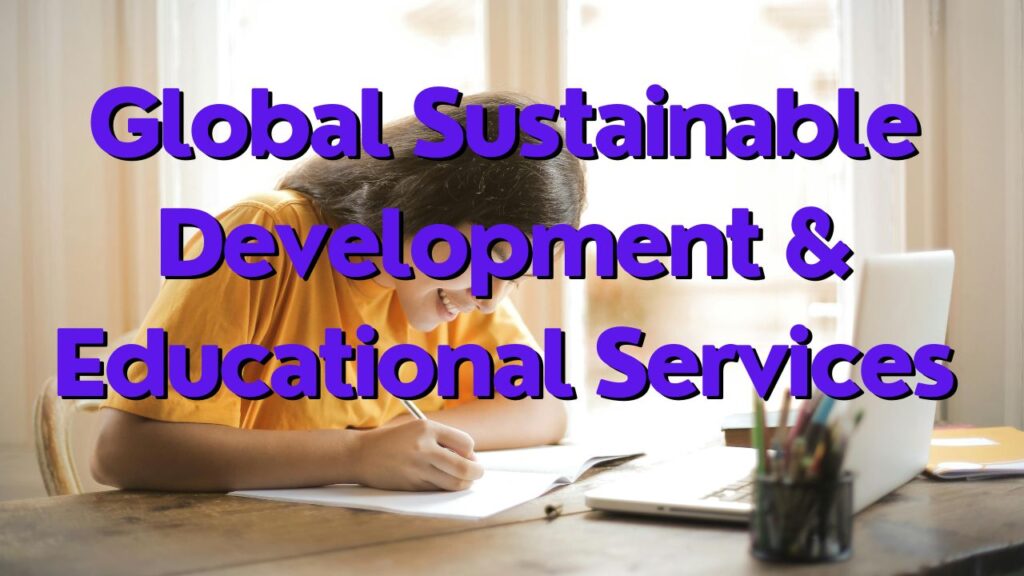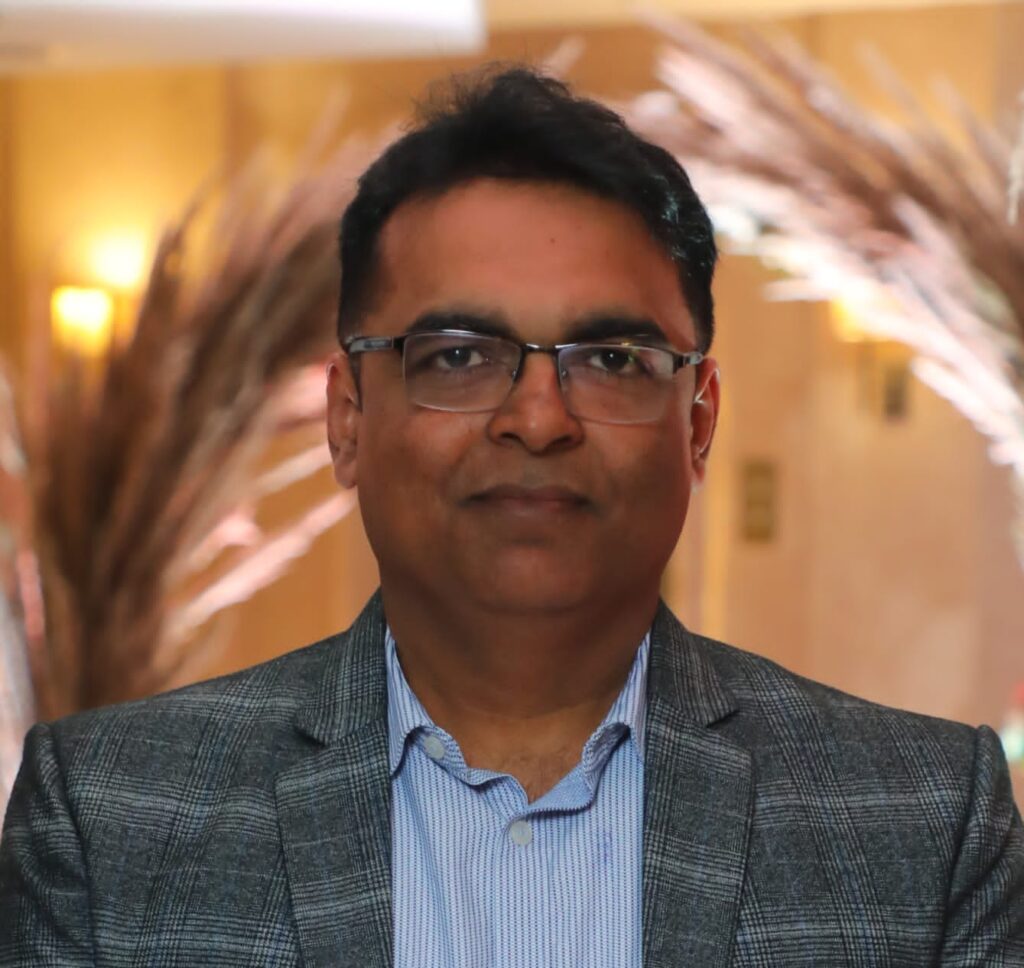Global Sustainable Development and educational services are intricately intertwined and crucial for addressing the challenges facing our planet today.


Sustainable development encompasses the idea of meeting the needs of the present without compromising the ability of future generations to meet their own needs. Education plays a fundamental role in achieving sustainable development by empowering individuals with the knowledge, skills, values, and attitudes necessary to contribute to a more sustainable world.
Global Sustainable Development:
Here are some key points regarding the relationship between global sustainable development and educational perspectives:
1. Awareness and Understanding: Education raises awareness about the interconnectedness of social, economic, and environmental issues at local, national, and global levels. It helps individuals understand the complex challenges facing the world, such as climate change, biodiversity loss, poverty, and inequality.
2. Capacity Building: Education builds the capacity of individuals, communities, and institutions to address sustainable development challenges effectively. It equips learners with critical thinking, problem-solving, and decision-making skills necessary to analyze issues, explore solutions, and implement sustainable practices.
3. Promotion of Sustainable Lifestyles: Education promotes sustainable lifestyles by fostering values of environmental stewardship, social responsibility, and ethical consumption. It encourages individuals to make informed choices that minimize their ecological footprint and contribute to the well-being of people and the planet
4. Empowerment and Participation: Education empowers individuals to participate actively in sustainable development initiatives, advocacy campaigns, and policy-making processes. It enables marginalized groups, including women, youth, and indigenous communities, to voice their concerns, demand justice, and drive positive change in their communities.
5. Lifelong Learning and Continuous Improvement: Education is a lifelong process that extends beyond formal schooling. It involves continuous learning and adaptation to new knowledge, technologies, and societal changes. Lifelong learning enables individuals to stay informed about emerging sustainability issues and engage in ongoing efforts to improve sustainability outcomes
6. Integration of Sustainable Development Goals (SDGs): Education plays a critical role in achieving the United Nations Sustainable Development Goals (SDGs) by 2030. It helps integrate the SDGs into curricula, teaching methodologies, and extracurricular activities across educational institutions worldwide. By aligning education with the SDGs, countries can accelerate progress towards a more equitable, inclusive, and sustainable future.
7. Global Collaboration and Partnerships: Education fosters global collaboration and partnerships for sustainable development. It connects learners, educators, researchers, policymakers, and practitioners from diverse backgrounds and cultures to share knowledge, exchange best practices, and work together towards common goals.
In conclusion, global sustainable development and educational perspectives are interconnected in fostering a more sustainable future for all. By prioritizing education as a catalyst for change, societies can empower individuals and communities to build a world that is environmentally resilient, socially inclusive, and economically prosperous.
Education for sustainable development
Our education system should create awareness about and trigger conversations around social and environmental awareness
“Tell me and I forget. Teach me and I may remember. Involve me and I learn.”
this famous saying reinforces the relevance of participatory approaches for teaching-learning processes. Education is not static but evolves and changes with time. It should be used as a tool that will facilitate sustainable living and also provide opportunities to think critically, innovate and provide solutions towards local challenges that have a global relevance.
The world community’s adoption of the Sustainable Development Goals (SDGs) in 2015 has set the agenda for 2030. It rests on the principles of the four Ps (Peace, Prosperity, People and Planet) and also advocates global partnerships that will facilitate transformative impacts based on economic, social, and environmental improvement for all sections of society. The coronavirus pandemic also had a massive global impact leading to institutional failures, a slowdown of economic growth and a corresponding surge in environmental and health threats.
Technology in education
Technological advances in education have led to hybrid learning models that present an opportunity for students to skill themselves in digital education. The current blended education balances traditional teaching with digital modes, and will further pave the way for more integrated and technology-led interventions. This transformation will ensure a continuity of education processes and introduce a cloud-based integrated platform, that will bring all stakeholders (parents, teachers, the administration and the student community) together. This will ensure transparency and also allow automation of administrative work, giving teachers more time to focus on students’ learnings.
In the Indian context, technology adoption in schools is aligned with the objectives of the National Education Policy (NEP) 2020 and provides early exposure to youth about new frontiers. For example, learners who are versed in Geographic Information System (GIS) techniques can secure work opportunities in areas related to Science and Social Science specializations that need technical skills related to data collection, analysis and creating of scenario mapping. Sectors related to real estate, forensics, farming, resource prediction and futuristic planning offer a range of work opportunities to GIS experts.
Remote sensing is the art and science of acquiring data without being in direct physical contact (by using sensors on airplanes or satellites). This is a must for every learner aspiring to acquire a 21st-century education. AI has a range of applications in sectors such as banking, medicine, security, e-commerce and telecommunications. Wildlife scientists bank heavily upon tracking species movement, especially during the reproduction phase and migrations. The Very High Frequency (VHF) radio devices used at first have been replaced by Global Positioning System (GPS) units. Wildlife conservation is also making use of aerial drones, infrared cameras, Radio Frequency Identification (RFID) tags, devices that monitor movement in real-time and GPS geolocation. This helps to identify and locate species, making it easier to limit losses due to illegal hunting, and to create a database of their specific activities.
Use of demographic data:
Today, 65% of India’s population comprises youth below 35 years. While this demographic dividend should translate into more job opportunities, it will be possible only if employability skills are enhanced by transforming our education system into being more practical and industry-oriented. With one out of every six people in the 15-24 age group, it is critical that we work with youth through each opportunity that can trigger conversations around social and environmental awareness and usher in a new paradigm of change.
Our education system should create awareness about sustainability and negate the scepticism around the warnings being issued about the degrading environment. Teaching and learning experiences should be based on local context and avenues for interactions with practitioners for knowledge exchange are a must.
The development of education is a multifaceted process that involves various stakeholders, policies, practices, and innovations aimed at improving learning outcomes, expanding access to education, and promoting lifelong learning. Here are some key aspects of the development of education:
1.Access and Equity: One of the primary goals of education development is to ensure access to quality education for all individuals, regardless of their socio-economic background, gender, ethnicity, or geographic location. Efforts are made to remove barriers to enrollment, such as poverty, discrimination, distance, and disability, and to promote inclusive education systems that cater to the diverse needs of learners.
2.Quality Improvement: Education development focuses on enhancing the quality of teaching and learning processes to ensure that students acquire relevant knowledge, skills, and competencies. This involves curriculum reforms, teacher training programs, pedagogical innovations, and the integration of technology in education to create engaging and effective learning environments.
3.Curriculum and Pedagogy: The development of education involves the continuous review and adaptation of curricula and pedagogical approaches to meet the evolving needs of learners and society. This includes updating subject content, incorporating interdisciplinary learning experiences, promoting critical thinking and problem-solving skills, and integrating values of sustainability, diversity, and global citizenship into the curriculum.
4.Teacher Training and Professional Development: Educator capacity-building is essential for the development of education systems. This includes pre-service and in-service training programs for teachers, school leaders, and education administrators to enhance their pedagogical skills, subject knowledge, classroom management techniques, and understanding of educational theories and practices.
5.Infrastructure and Resources: Education development requires investment in physical infrastructure, such as schools, classrooms, libraries, laboratories, and ICT facilities, as well as the provision of teaching and learning materials, textbooks, digital resources, and educational technology tools. Adequate funding, efficient resource allocation, and sustainable management practices are critical for maintaining and expanding educational infrastructure and resources.
6.Lifelong Learning and Continuing Education: Education is a lifelong process that extends beyond formal schooling. The development of education systems promotes lifelong learning opportunities for individuals of all ages and backgrounds, including adult education, vocational training, skills development programs, and non-formal education initiatives. Lifelong learning enables individuals to adapt to changing economic, social, and technological realities and to participate actively in civic life and sustainable development efforts.
7.Policy and Governance: Education development is guided by national policies, laws, and regulations that set priorities, goals, and standards for the education sector. Effective governance structures, accountability mechanisms, and stakeholder engagement processes are essential for ensuring transparency, equity, and efficiency in education delivery and management.
8.Research and Innovation: Education development relies on research and innovation to generate new knowledge, insights, and solutions to educational challenges. It involves collaboration between researchers, policymakers, practitioners, and communities to identify best practices, evaluate interventions, and develop evidence-based policies and programs that enhance teaching and learning outcomes.
Overall, the development of education is a dynamic and ongoing process that requires concerted efforts from governments, civil society organizations, international agencies, the private sector, and local communities to create inclusive, equitable, and quality education systems that empower individuals and societies to thrive in the 21st century.


Dr. Vivek Kumar Jha
Prof. and H.O.D
Department of Audiology and Speech Language Pathology
Faculty of Allied Health Sciences,
Shree Guru Gobind Singh Tricentenary University,
Gurugram, Haryana.











